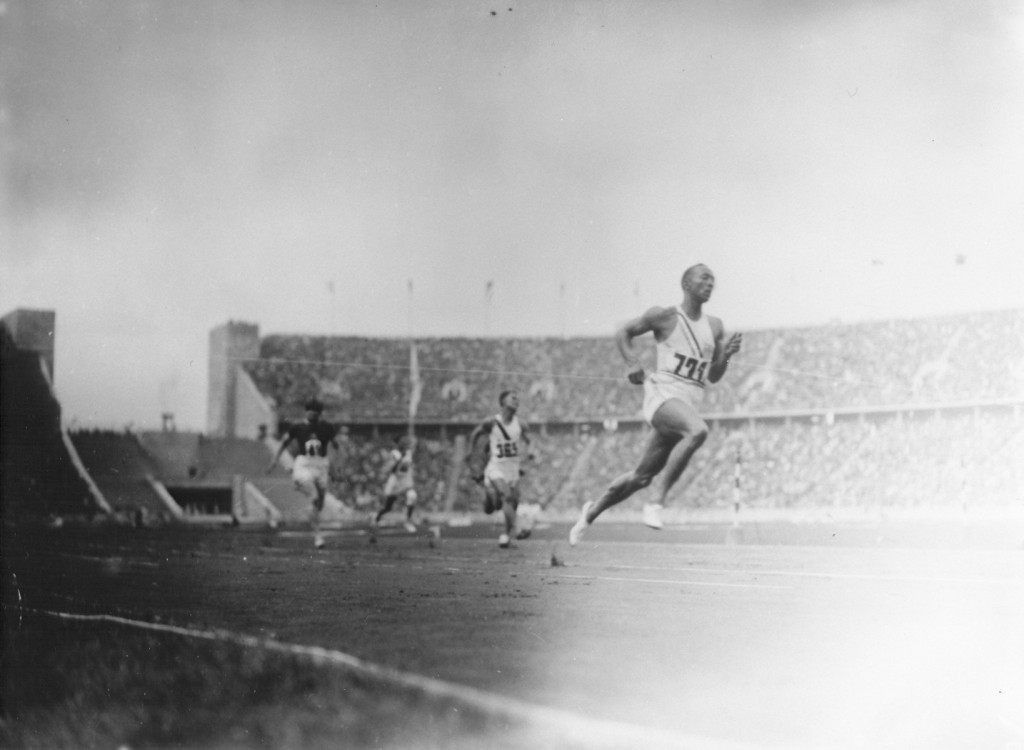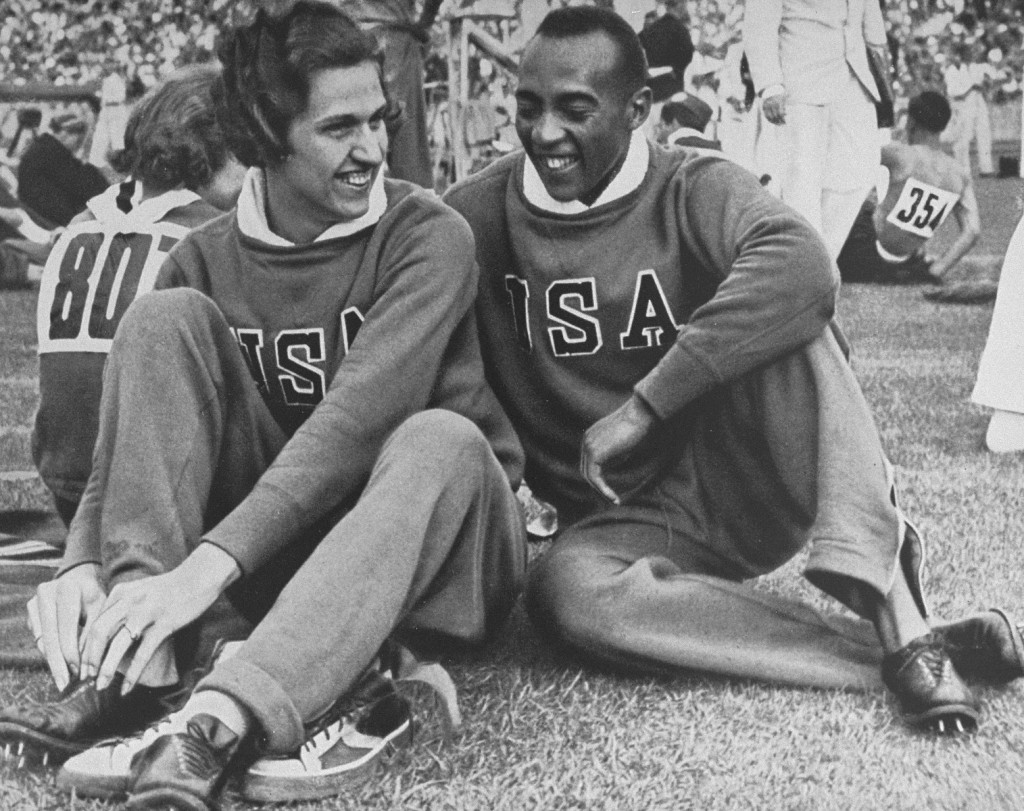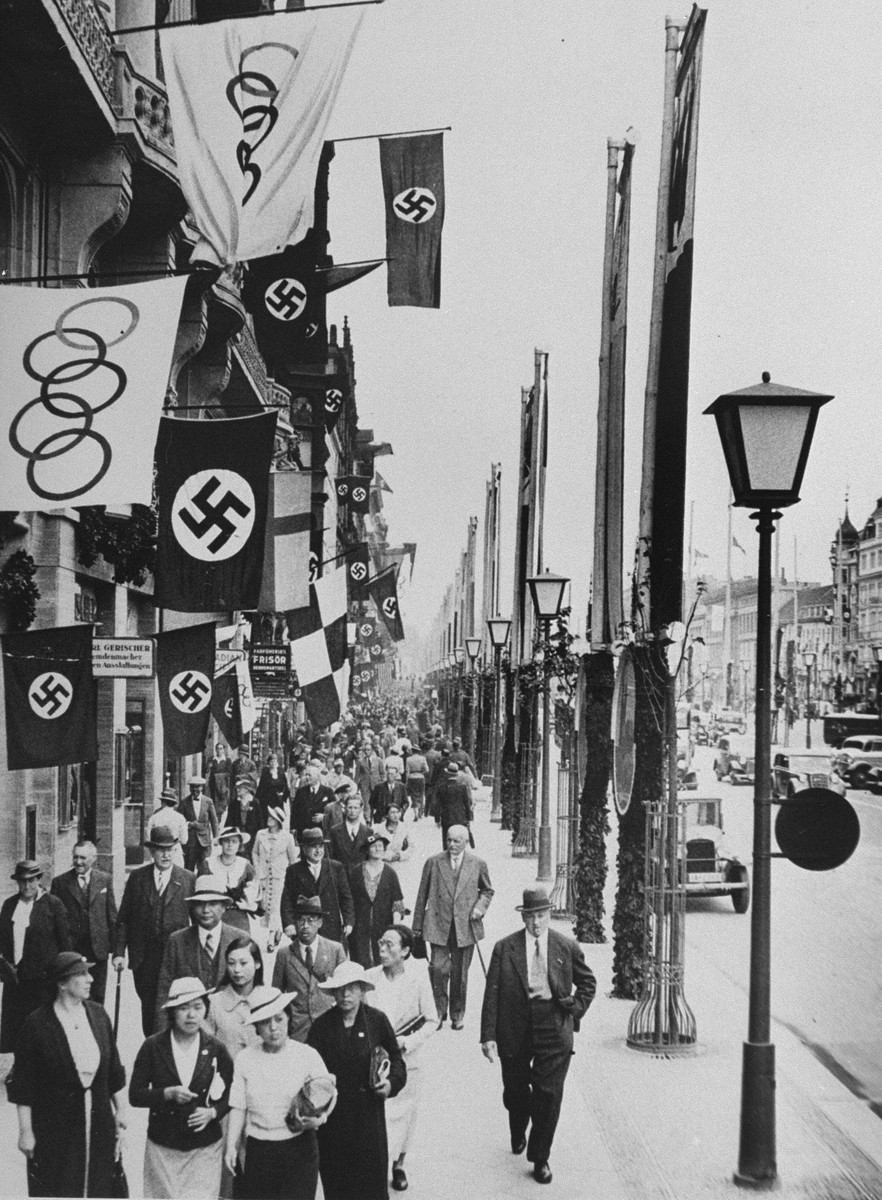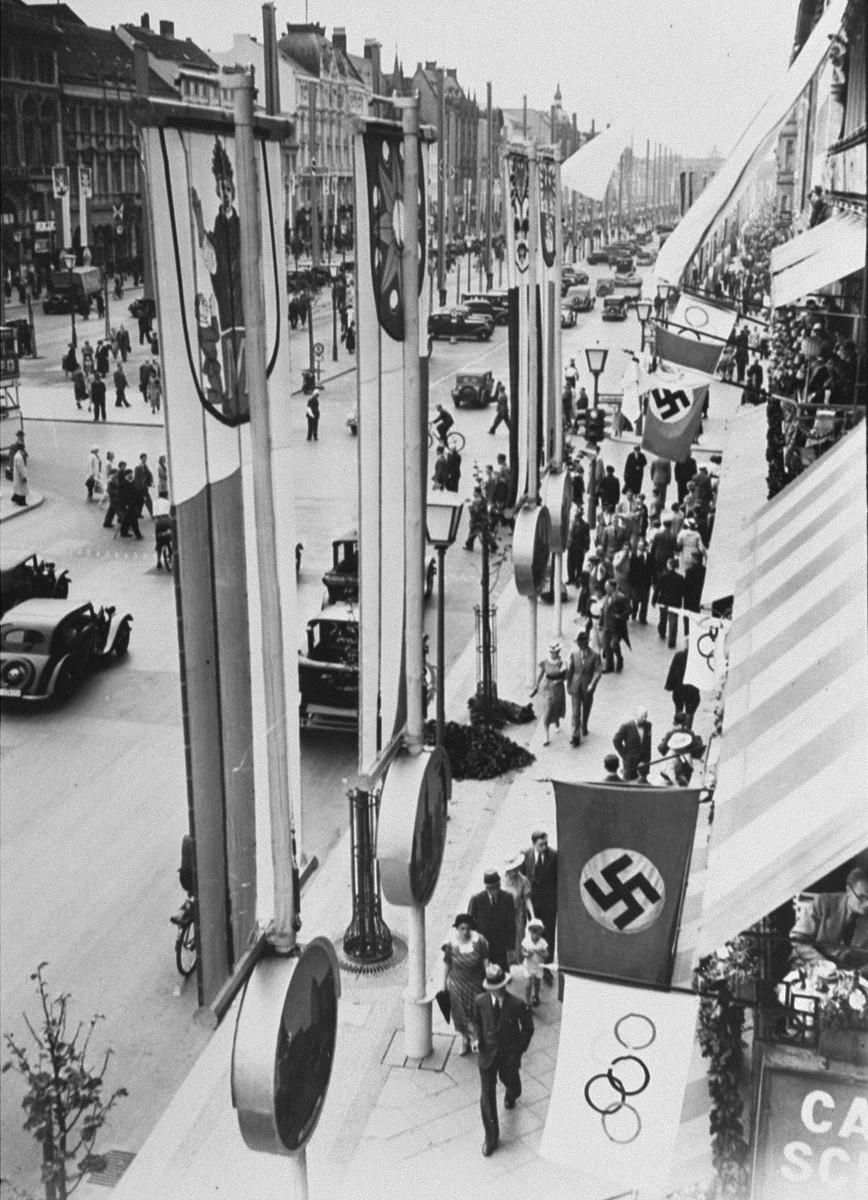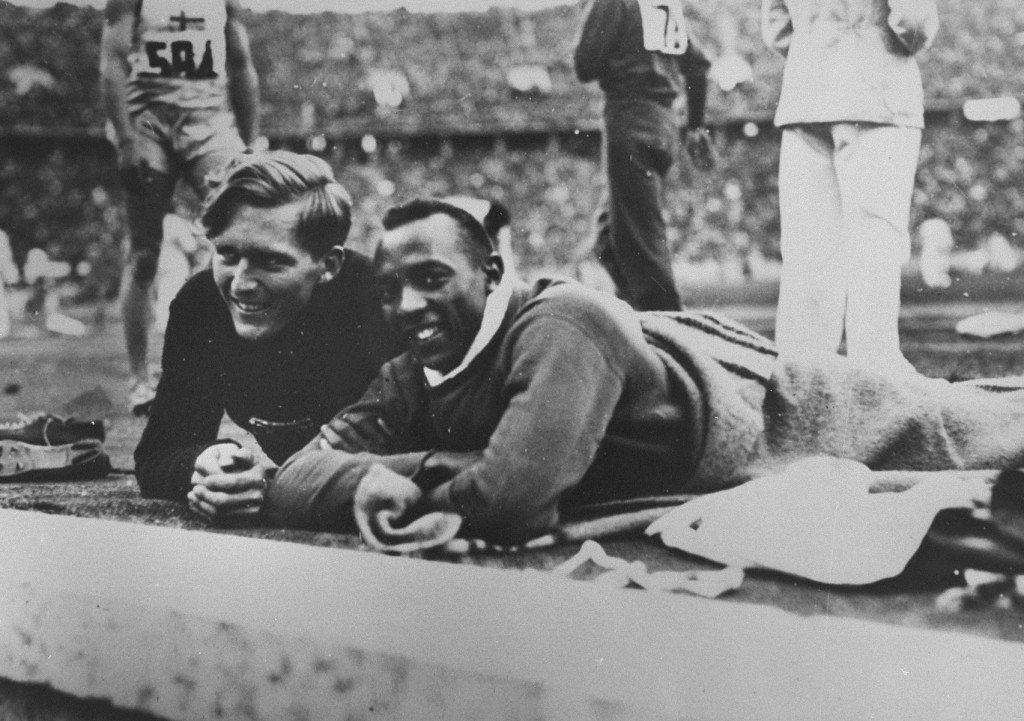
The Nazi Olympics Berlin 1936: African American Voices and "Jim Crow" America
After the Nazi seizure of power in Germany in 1933, the United States and other western democracies began to question the morality of supporting the Olympic Games hosted by the regime. For African Americans, this decision had an added dimension. They already faced racism at home and now they had to decide whether to represent the United States in Germany, a country dominated by a racist dictatorship.
Key Facts
-
1
Because of racial discrimination, opportunities for Black athletes in the United States were limited in both college and professional sports. Though American journalists called attention to the discrimination of athletes abroad, they tended not to address the problem of discrimination against athletes at home.
-
2
The African American athletes who competed in the 1936 Olympics won 14 medals. Four of those were gold medals won by Jesse Owens.
-
3
After the Games, African American athletes returned home to face the same discriminatory policies as before. Even winning medals for their country did not immediately change societal attitudes towards African Americans.
Background
Soon after Adolf Hitler took power in Germany in 1933, observers in the United States and other western democracies debated on whether or not to boycott the 1936 Olympic Games. While Hitler saw the Olympics as a chance to demonstrate the superiority of what he considered the “master race,” observers from outside Germany questioned the morality of supporting Olympic Games hosted by the Nazi regime. This led to debates on whether or not to participate in this international sporting event. For African Americans, this debate had an added dimension. They already faced racism at home and now they had to decide whether to represent the United States in a country dominated by a racist dictatorship.
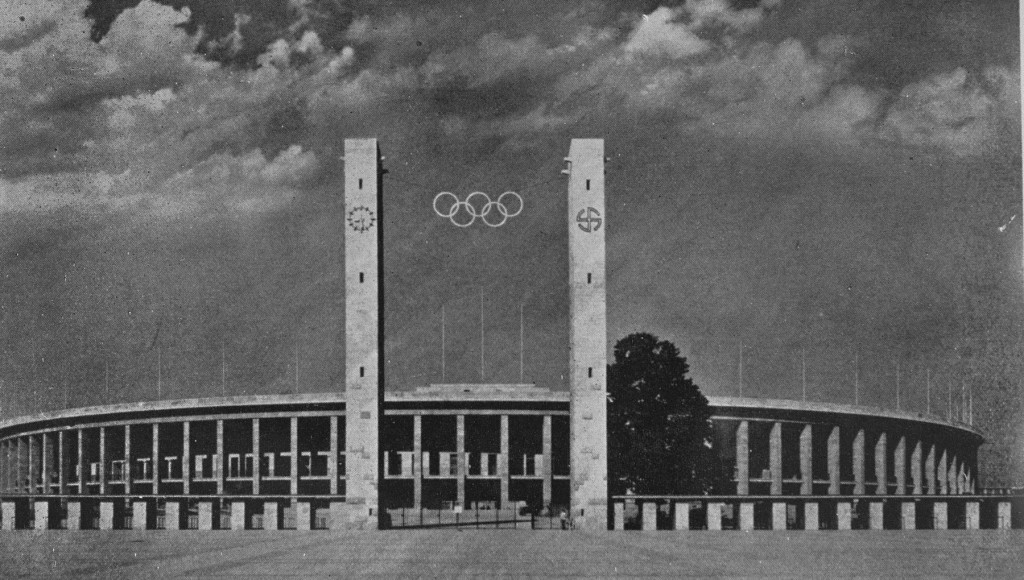
Discrimination at Home
In the 1930s, Black people suffered discrimination in most areas of American life. "Jim Crow" laws, designed to keep Black people powerless and segregated, barred African Americans from many jobs and from entering public places such as restaurants, hotels, and other facilities. In the South especially, Black people lived in fear of racially motivated violence. This discrimination extended to a number of institutions. For example, the United States military was still segregated during World War II. Racial discrimination was also prevalent in sports. Opportunities for Black athletes were limited at both the college and professional levels.
The Boycott Debate and African American Athletes
Movements in the United States and other countries to boycott the 1936 Olympic Games in Nazi Germany began already in 1933.
During the boycott debate, African American athletes faced pressure to take a moral stand against Nazism. Having successfully trained to become Olympians, some African American athletes resented being asked to protest the discrimination against Jewish athletes in Germany while America had its own pervasive and segregationist Jim Crow laws.
Thus, African American athletes were in a unique position when it came to the boycott debate. On the one hand, the Olympic Games provided an opportunity for Black American athletes to demonstrate their talents and chip away at racial stereotypes at home and abroad. On the other, there were concerns for how Black Olympians would be treated upon their arrival for the Games in Nazi Germany. These concerns, however, were quickly alleviated. In June 1933, under pressure from the International Olympic Committee, the German Olympic Committee pledged that Germany would abide by the Olympic Charter. This charter banned all discrimination in sport.
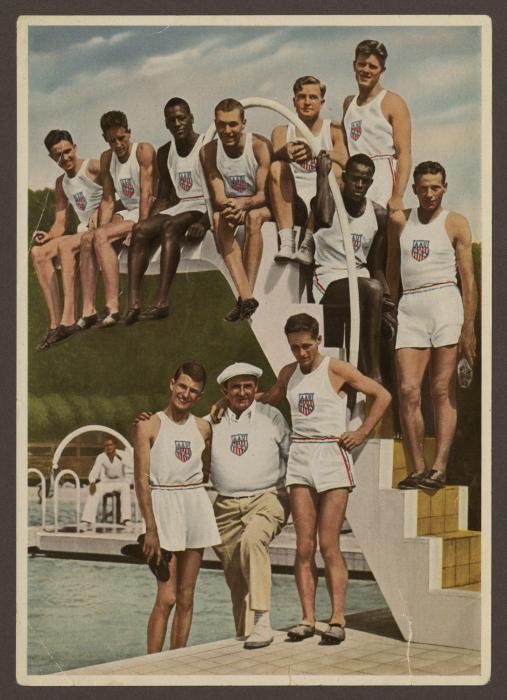
With concerns about the safety of Black athletes in Nazi Germany thus allayed, many African American newspapers opposed boycotting the 1936 Olympic Games. Black journalists criticized supporters of the Olympic boycott for their hypocrisy: how could they talk so much about discrimination against athletes in foreign lands but not address the problem of discrimination against athletes at home? They also pointed out that all the Black Olympians came from northern universities that served mostly white students. They said that this showed the inferiority of training equipment and facilities at traditionally Black colleges, where most African American students were educated in the 1930s.
Writers for such papers as the Philadelphia Tribune and the Chicago Defender argued that victories by Black athletes would undermine racism and the emphasis on "Aryan" supremacy at the core of Nazi racial views. They also hoped that such victories would foster a new sense of Black pride at home. The Chicago Defender reported, on December 14, 1935, that African American track stars Eulace Peacock, Jesse Owens, and Ralph Metcalfe favored participating in the Olympics because they felt that their victories would serve to repudiate Nazi racial theories. (An injury would prevent Peacock from participating in the Games.)
African American opinions on this matter, however, were not unanimous. Some Black-owned newspapers and the National Association for the Advancement of Colored People (NAACP) strongly opposed the racist policies of the Nazi regime. Already in 1933, the NAACP expressed concern about Black athletes’ participation in the Berlin Olympics. And as late as August 1935, the New York Amsterdam News encouraged Black athletes to boycott the Games.
In December 1935, Walter White, Secretary of the NAACP, expressed his opposition to the Games in a letter drafted (external link) but never sent to Jesse Owens. In this draft letter he urged Owens to boycott the 1936 Olympic Games, writing:
“...it is my firm conviction that the issue of participation in the 1936 Olympics, if held in Germany under the present regime, transcends all other issues. Participation by American athletes, and especially by those of our own race which has suffered more than any other from American race hatred, would, I firmly believe, do irreparable harm.”
–Letter drafted but not sent from Walter White, NAACP Secretary,
to Jesse Owens, Olympic athlete
December 4, 1935
White also raised the issue of growing antisemitism, and growing anti-Catholic and anti-Black prejudice in the United States. He expressed fears that the United States could head towards a Fascist dictatorship if the Hitlers of the world were not stopped.
It seems that White never sent this letter to Owens; however, his words provide a historical record of the moral and ethical dilemmas faced by African American athletes at the time.
African American Athletes in the 1936 Olympics
In the end, 18 African Americans (16 men and 2 women) competed in the 1936 Olympic Games in Berlin. This was three times the number who had competed in the 1932 Los Angeles Games. The increase in the number of Black athletes who competed reflected the migration of Black people to northern cities beginning in the 1910s. It was also the result of the growing interest of northern colleges in recruiting Black athletes.
The African American athletes on the 1936 US Olympic team brought home 14 medals: 8 gold; 4 silver; and 2 bronze.
| African American Medalists | |
| David Albritton | High jump, silver |
| Cornelius Johnson | High jump, gold |
| James LuValle | 400-meter run, bronze |
| Ralph Metcalfe | 4x100-meter relay, gold 100-meter dash, silver |
| Jesse Owens | 100-meter dash, gold 200-meter dash, gold Broad (long) jump, gold 4x100-meter relay, gold |
| Frederick Pollard, Jr. | 110-meter hurdles, bronze |
| Matthew Robinson | 200-meter dash, silver |
| Archibald Williams | 400-meter run, gold |
| Jack Wilson | Bantamweight boxing, silver |
| John Woodruff | 800-meter run, gold |
Continued Discrimination after the Olympics
While the 1936 Olympic victories were a source of pride for the African American communities in the United States and a step toward alleviating discrimination in American sports, they did not have an immediate impact on the daily lives of Black athletes at home or on American race relations in general. After the Olympics, the athletes returned to a country segregated by race, to a nation where they were treated as “second-class” citizens. A survey of the press from the time, particularly in the South, indicates that the success of African American Olympians was either downplayed or ignored.
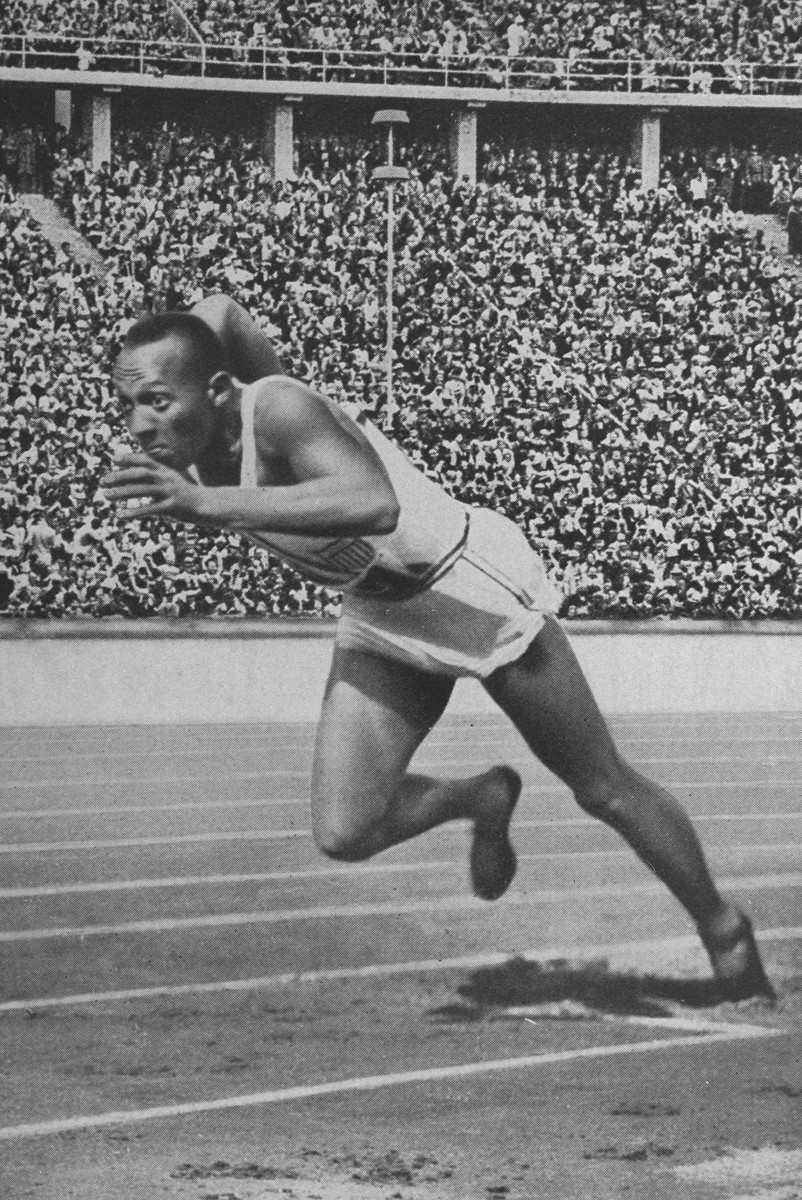
And Olympic victories did not translate into professional opportunities. As Jesse Owens, the most celebrated athlete on the 1936 US Olympic team, wrote in his 1972 autobiography I Have Changed:
“After I came home from the 1936 Olympics with my four medals, it became increasingly apparent that everyone was going to slap me on the back, want to shake my hand or have me up to their suite. But no one was going to offer me a job.”
—Jesse Owens, 1972
Despite this pervasive racism, the boycott debate before the Olympics and the clear victories of African American athletes at the Games had an impact in the long term. Specifically, the boycott debate called attention to racial discrimination through the prism of sports, while the Olympic victories of such celebrated figures as Jesse Owens and Mack Robinson inspired future Black Olympians.
Critical Thinking Questions
Investigate the lives of the Black athletes after the Olympics.
Have other countries been represented at the Olympic Games by members of a persecuted minority?
When and how did America emerge from the “Jim Crow” era?



